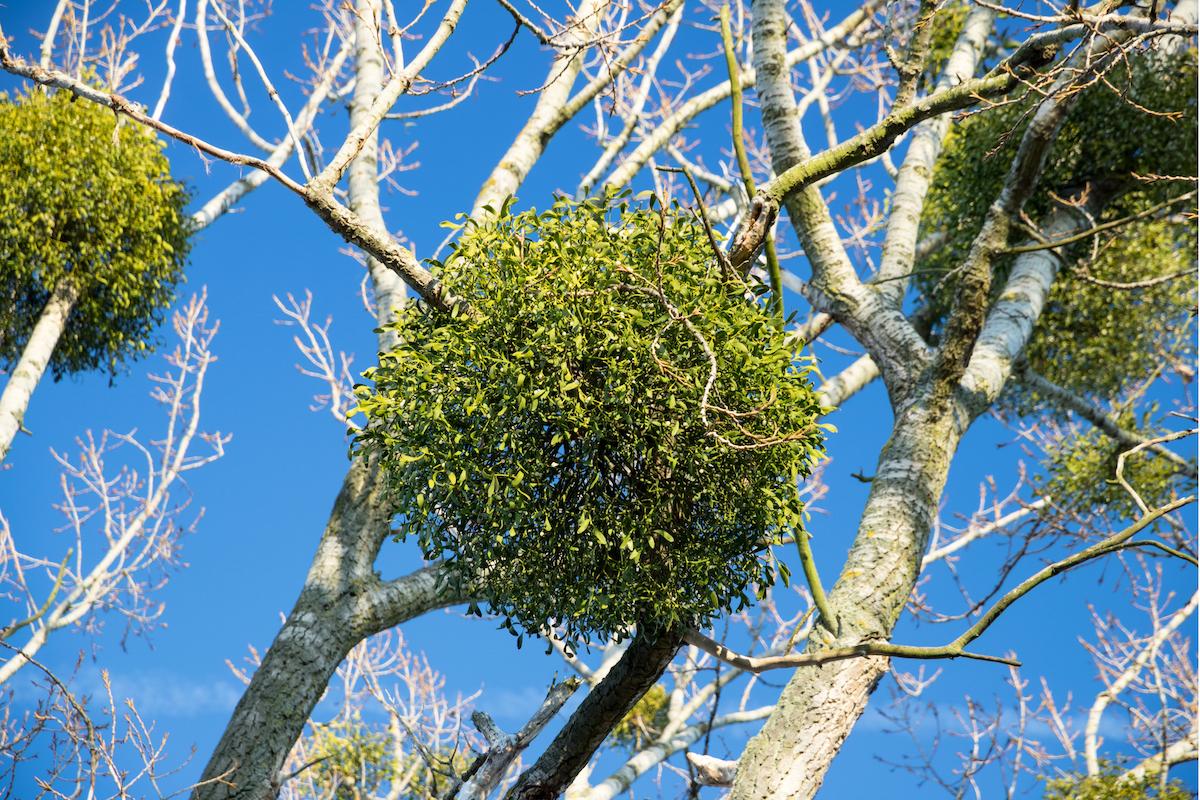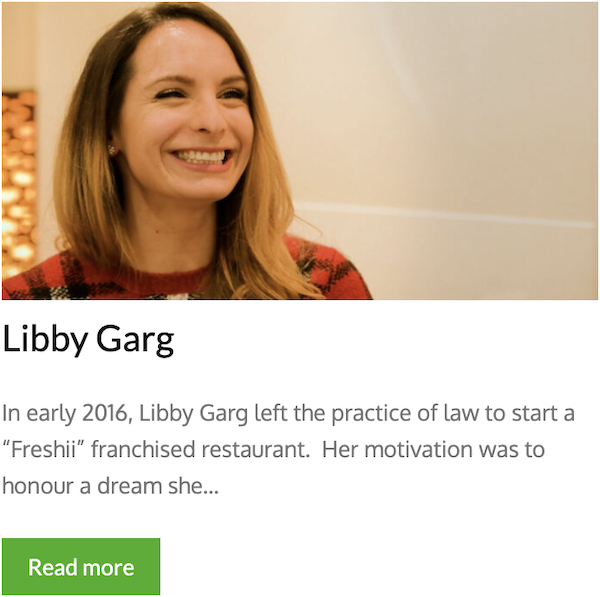The System of Things
Chapter One

What’s a story? A book, sure. And a new article. And, yes, even a social media post.
But what makes a story? What separates the story we hear at the coffee shop from the story we hear on the evening news?
Research, of course.
“You can’t be a ‘don’t confuse me with facts’ kind of person. I think the first thing you have to do is have a respect for reality, for facts, for data.”
Former prime minister Kim Campbell is right. But to find data – to understand reality – journalist Josh Hall explains it’s about more than a simple Google search.
“Sure, Wikipedia is easy to go and check out, and sometimes it’s right – most of the time they’re probably right. But doing your own research doesn’t just mean searching online. Doing research means calling up the people that are affected by the story, going out to the place where they live. That’s research.”
And we should all channel our inner journalist and learn to be better researchers. Why? Founder of the Canadian Association of Girls in Science – and researcher extraordinaire – Larissa Vingilis-Jaremko explains.
“We have to have an understanding of the problem. And before we can have that understanding, we need to do the research to see who else is out there, what has been studied, what do we know about it.”
Fair point. But all of that? It’s sounds daunting. And frankly? Research can often sound boring. But it’s not, argues storyteller Ian Brown.
“It starts with, I think, personal curiosity. What actually grabs you. All those details always lead to bigger, more important, more universal issues and truths.”
Of course, uncovering the truth and understanding the full story matters. As researchers. As storytellers. As citizens.
Ian tells us, “It’s great to say for the sake of the cause – for the sake of the propaganda, or to get a political point across – it’s great to generalize about things. But generalizing, I think, as you well know, is cheap. Generalizing makes you look like an idiot. And you cannot tell true stories purely in generalities.”
And when we realize we all tell stories in our own ways, to our own audiences, the importance of good research becomes obvious, Ian points out.
“The more deeply you tell a story, the more completely, the more people you talk to, the more points of view you at least have in your quiver when you’re sitting down to write it, the more complicated it becomes. The more complicated something is, the less doctrinaire and stupid and one-sided you can be about it.”
When we dig deeper? Ian says, “You have to be able to recognize what actually feels true to you, as opposed to what’s supposed to feel true or what other people tell you is true. They want you to believe something, probably for commercial purposes. Maybe you want to believe something is true because it will make you cool if you believe that, but in fact you don’t really believe that. You have to be able to recognize that and you have to have the courage, the faith, the lack of fear of failure to pursue the truth. And when you get to the end of your curiosity, sometimes you find, ‘wow – that’s a story’. And that’s what makes a story – the pursuit of your own curiosity, about the things that actually grab your hackle of attention.”
As an example?
Take this rather drab thorny-thing in the Robson Valley’s Jackman Flats Provincial Park.
If we discovered it while hiking and took a photo, it wouldn’t be more than a throwaway shot for an Instagram post. If we hate our followers that is.
But if we researched this plant – uploaded the image to iNaturalist – we’d discover what we found is actually Viscum Album, otherwise known as mistletoe.

And mistletoe? As Ian Brown explains, it’s worth researching.
“I discovered, at my local garden store, that there’s no more mistletoe. Mistletoe’s the stuff you kiss under, or you’re supposed to kiss under, during the holidays. There’s no more mistletoe because of the drought in Texas, the fires in California, all of which are furthered by man-made climate change.”
Wait, there’s more.
“3000 years ago, the Druids started using it. It’s a parasitic plant, it lives off of other plants, so it doesn’t really rely on light, or photosynthesis. So, in December, the darkest time of the year, on the shortest day – which was a big moment in Druidic culture because they didn’t like darkness, it frightened them – they noticed these berries were blooming in December. So, the Druids thought there must be something special, some kind of magic in mistletoe. And that’s why we stand under them and kiss.”
Ian continue, “This is a very minor story, but the loss of natural traditions – the loss of that tradition – that’s a pretty interesting little story that a lot of people don’t know and will be interested to read about, if I present it in an accessible, funny, amusing, interesting way. That starts with: ‘Oh, there’s no mistletoe. That’s weird’. Then making a few phone calls, reading a book, calling around, thinking, experiencing…”
See? This is where curiosity meets good research and where good research propels good storytelling and where good storytelling can make an obscure issue more relevant to more people.
Indeed, Ian’s story should underline that research isn’t just the domain of librarians or university professors or obscure labs in obscure parts of the country.
We all need to develop research skills, no matter who we are or what we want to do.
“I think it matters now more than ever.”
Libby Garg is a justice of the peace, a lawyer by training. And as any good lawyer will tell you, to win a debate in the classroom, in the business world, in politics, or in society more broadly, good research is always what wins the day.
“Back-up any side that you are going to take by really, truly understanding, not only your own argument, and your own position that you decide to take on an issue, but also the opposing position, or even a position that is complementary, but contrary to your position.”
Libby adds, “All of those different viewpoints allow you to not only challenge your own understanding of an issue, but also articulate it in a better way so that you can have more intelligent conversations.”
Libby’s legal background has allowed her to flourish as an entrepreneur – overseeing food service franchises and helping launch her own tech start-up.
“My ability to understand and learn about issues and have a curious mind has led to innovation. For example, if I don’t like the way that a situation unfolds, I ask, ‘well, why did it unfold that way?’”
And asking why is the key, Libby says. It’s what’s driven her at every turn.
“I don’t ever feel like I’m smarter than anybody, but I will outwork the next person.”
That’s the thing about research: it’s not about talent. It’s about having the determination to dig deeper – to dig the deepest of anyone – in order to find the best answer.
It’s a lesson Libby says she learned while growing up on a rural dairy farm, and also through her Indigenous culture.
“There’s a bit of a break in some of our culture. Some of the individuals in our band are taking it upon themselves to re-learn our traditions and then to pass those along and ensure that those are a part of the education system for the youth of the Okanagan Band.
That’s right: research also helps us understand culture – our own and that of our neighbours. It also helps us in understanding our natural neighbours.
“What goes into making an ecosystem and why is it important? How does it impact the creatures living there? That would be the empathy side of it, but also, how does it affect me?”
By following our questions, we can uncover facts that can inform solutions to the challenges we face, according to Libby.
“We need to be thinking critically about how we want to interact with the Earth; about what values are important to us. What do we need to protect? Where do we need to give? And what kind of a world are we comfortable leaving for the next generation?”
One problem. Nature questions, nature research, nature stories? They don’t always resonate.
Storyteller Ian Brown has a theory as to why.
“I think the problem with a lot of nature journalism is that nature is a holy subject. It’s like writing about the Catholic Church, back when the Catholic Church controlled everything. You did not say anything that was out of line because they’d cut your head off and throw you in the river. And nature is such an important topic. The preservation of it; how we interact with it; whether we’ll have any to interact with; how we’re destroying it or not destroying it. That’s such an important story that it’s become an almost religious subject.”
Ian adds, “Too often a nature story starts with a theory, and it’s about a theme. Somebody says, ‘well, what should we write about?’ and someone goes ‘well, let’s write about climate change.’ Well, that is a vast subject, you know? And where are you going to start? You going to start up north? You going to start down south? You going to start with rising water or shrinking forests? I mean, who knows? So the trick, I think, is to start with – again – the detail that interests you.”
Ian offers this example.
“I was supposed to write about life in the Arctic and it’s like, you know, why don’t I just write War and Peace or something small? What got me going is that I ran into these guys going muskox hunting. And they were strange guys. They weren’t like the hunters I know down south who’ve got all the gear, you know? (Down south) They’ve got 15 rifles and 75 parkas and different kinds of camo and ammo and all that stuff. Whereas up north, these guys showed up like they were going to Tim’s for coffee. They were wearing a hockey shirt, boots. That’s it! Anyway, their story – the story of how you actually identify a muskox, what it’s good for, how they defend themselves, the ride on the qamutiik they drag me on – all these things in their individual parts were fascinating. And together, they made a great story. But you have to start with what’s actually interesting.
And maybe even that sounds daunting. Don’t let it be so, right social innovator Dev Aujla? He says start here:
“What should I have for lunch? Honestly, it could be anything along those lines. And if you start going down a path, and start looking at and asking people and talking to them, it could lead you into talking to different chefs and cooks and restaurants and a whole world about different ways about thinking about food. And different ways about thinking about lunch and all the people that are working in that industry; about academics that are thinking about the history about where curry came from. You know? Who knows!”
Dev is right. The unknown isn’t scary. It’s fascinating.
When we unleash our curiosity – when we remove limitations about how far we’ll go to ask our questions – anything is possible.
“Whatever that random hobby you have, or that question that pops in head, take it further than you think. Take it two steps further. Don’t just Google it and find an answer. Hold it. Hold that question for 3 months, for 2 weeks even, and go to the museum and ask that same question. Go talk to 5 people and ask that same question. Read a book related to it. Just take that question further than you think. If you get in a habit of doing that, (research) will be more interesting. And your life will take different paths that you might never have expected.”
Dev continues, “If you have that question and take it further, you’re going to find companies, you’re going to find people that are working in that space that you never would have noticed on that first Google search. You would have had your answer and would never have found those people. You never would have found those companies. And for the questions that stick around? You don’t need to have a big (research) framework to understand, you don’t need to do that much thinking even to decide if it’s an interesting question. Just, does it feel like energy? Does it feel exciting? Do I still want to do it? Good enough.”

And Dev should know. He’s one of the world’s great researchers. It’s what allowed him to launch the non-profit Dream Now as a teenager – helping people innovate the way they do good. Research is what led him to writing two books on bridging career and meaning. And it’s what’s allowed Dev to start a head-hunting company and a hobby library in New York City.
For each endeavour? Dev says it’s about “starting to move in a direction. Most of this is all about momentum. How do you get it? How do you keep it going? How do you get other people on your side to help you when you’re in a dip? I think it’s actually mostly about that.”
Dev’s advice?
“Take note of your thoughts and write them down and make sure you are being aware and starting to move in the direction of the questions you have.”
In the doing, what we uncover can be part of our story. A story based on our research or research that propels a bigger story, a bigger narrative.
It’s why research matters. It’s why storytelling matters.
And, if we choose, it’s why good research can lead to great stories – great stories that can help us rethink what we know and reimagine what’s possible when we try to be different, when we try something new, when we try for something better, together, for all.




